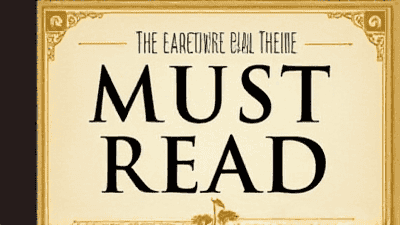
The Ultimate Guide to Launching Your Music Career from Scratch: Essential Steps
Embarking on a music career, once a path shrouded in mystique and gatekeepers, now presents an accessible yet intensely competitive landscape. In the digital age, the dream of turning passion into profession is more attainable than ever, but it demands far more than just musical talent. Aspiring artists often grapple with the overwhelming task of establishing themselves, navigating a complex ecosystem where creative expression must intertwine with strategic business acumen.
The profound importance of music permeates human culture, serving as a universal language, a source of emotional connection, and a powerful catalyst for change. For the scientific community, the study of music's impact spans neuroscience, psychology, and sociology, while for the industry, it represents a multi-billion dollar economy encompassing creation, distribution, and live performance. Current developments, like the rise of independent artists and direct-to-fan monetization, challenge traditional industry structures, making a comprehensive understanding of career-building principles crucial. This guide is designed to demystify the process, offering a structured roadmap to transform raw talent into a sustainable livelihood. What impact would it have on an aspiring artist's journey or the broader music ecosystem if fundamental career-building principles remain unaddressed?
Cultivating Your Unique Artistic Identity

Crafting Your Sound and Vision
Developing a compelling artistic identity is the cornerstone of any successful music career. This identity is not merely about the music you create; it encompasses your distinctive sound, lyrical themes, visual aesthetic, personal brand, and the overarching message you wish to convey. It's akin to an artist’s unique fingerprint, distinguishing them in a vast and crowded creative landscape. The process involves deep self-discovery, exploring various genres to find your authentic voice, and understanding what truly resonates with you and your potential audience. For instance, Billie Eilish's minimalist, dark pop sound combined with her distinctive fashion and introspective lyrics forged an unmistakable identity early in her career, captivating a global audience. Similarly, Ed Sheeran’s acoustic storytelling and relatable themes have consistently defined his enduring appeal.
Authenticity is paramount; audiences connect with genuine expression. Consistency across all your creative output and public presence reinforces this identity, making you recognizable and memorable. Yet, an identity should also allow for evolution, reflecting an artist's growth without losing their core essence. Research consistently shows that artists with a clear, cohesive identity often achieve higher fan engagement and retention. Building this foundation involves not just practicing your instrument but also defining your story, understanding your "why," and envisioning the complete experience you want listeners to have. This meticulous preparation makes you a lighthouse in a crowded sea, guiding your target audience directly to you.
Amplifying Your Reach: Digital Footprint and Connections
Navigating Platforms and Forging Relationships
In today's music industry, a robust digital presence is non-negotiable for reaching audiences and establishing credibility. This encompasses everything from your profiles on major streaming platforms (Spotify, Apple Music) and social media channels (Instagram, TikTok, YouTube) to your professional website and email list. Each platform serves a unique purpose, contributing to your overall digital footprint. For example, TikTok has proven to be a powerful engine for virality and discovery, while Bandcamp allows for direct-to-fan sales and deeper community engagement, providing better monetization for independent artists. Your strategy should involve creating consistent, high-quality content tailored to each platform's audience and format, optimizing profiles with relevant keywords (artist SEO), and actively engaging with your followers to build a loyal community.
Beyond digital visibility, networking is crucial. This involves forging genuine relationships with fellow musicians, producers, sound engineers, industry professionals, and promoters. Attending local open mics, industry conferences, and online forums are excellent ways to meet collaborators and mentors. Treat every interaction as an opportunity to learn and contribute, not just to gain. These connections can lead to performance opportunities, collaborations, invaluable advice, and introductions to key figures in the industry. Think of networking as planting seeds; each interaction, even small, can blossom into a significant opportunity later.
To illustrate the diverse roles of popular platforms, consider the following data on their primary functions for independent artists:
| Platform | Primary Function | Key Engagement Metric | Monetization Potential |
|---|---|---|---|
| Spotify/Apple | Music Distribution & Discovery | Streams, Playlist Placements | Royalties (per stream) |
| Visual Branding & Community | Likes, Comments, Shares | Brand Deals, Merch Sales | |
| TikTok | Viral Content & New Discovery | Views, Shares, Sound Usage | Creator Fund, Brand Collabs |
| YouTube | Video Content & Long-Form Music | Subscribers, Watch Time | Ad Revenue, Sponsorships |
| Bandcamp | Direct-to-Fan Sales & Community | Album Sales, Follows | Direct Sales (music, merch) |
This table highlights that while streaming platforms are essential for music distribution, social media and direct-to-fan sites play critical roles in artist branding, community building, and diversified income streams. An artist who understands these differences and strategically leverages each platform is far more likely to amplify their reach effectively. For instance, a track going viral on TikTok can drive significant streams on Spotify, while a dedicated Bandcamp following provides a stable income regardless of streaming fluctuations.
Sustainable Success: From Passion to Profit

Exploring Revenue Streams and Business Acumen
Transforming musical passion into a sustainable career requires a clear understanding of various revenue streams and a strong foundation in business acumen. Beyond the traditional income from record sales and touring, modern musicians can tap into a diverse array of sources. Streaming royalties, though often modest per stream, accumulate over time. Live performances, from local gigs to festivals, provide direct income and fan engagement. Merchandise sales (t-shirts, vinyl, unique memorabilia) offer high-profit margins and strengthen brand identity. Sync licensing, which involves placing music in films, television shows, commercials, and video games, can provide significant upfront fees and ongoing royalties. Artists can also explore avenues like teaching music lessons, offering production services, or leveraging platforms like Patreon for direct fan support and recurring income.
Developing business acumen means understanding the financial, legal, and operational aspects of your music career. This includes budgeting your expenses (recording, marketing, travel) and tracking your income. Familiarizing yourself with basic legal concepts, such as copyright, intellectual property, and contract negotiation, is crucial to protect your work and ensure fair compensation. Registering your compositions with a Performing Rights Organization (PRO) like ASCAP or BMI (in the US) is essential for collecting performance royalties. Many independent artists find success by treating their career as a small business, meticulously planning, managing finances, and continuously seeking new opportunities. This diversified approach ensures that you don't put all your eggs in one basket, providing financial resilience and the freedom to focus on your art.
Conclusion
Launching a music career from scratch is a multifaceted journey that demands more than raw talent; it requires strategic planning, relentless effort, and adaptability. We've explored the critical stages: cultivating a unique artistic identity, building a robust digital presence and network, and establishing diverse monetization strategies for sustainable growth. The emphasis on authenticity in crafting your sound and vision underscores the importance of a compelling and consistent brand. Furthermore, navigating the digital landscape effectively, leveraging various platforms for reach and engagement, is crucial in an increasingly online world. Ultimately, understanding and diversifying revenue streams transforms passion into a viable livelihood, empowering artists to thrive in a dynamic industry.
Looking ahead, the music industry is on the cusp of significant transformations driven by technological innovation and evolving consumption habits. Artificial intelligence is poised to revolutionize music creation, mastering, and even personalized distribution, presenting both opportunities and complex ethical challenges around copyright and authorship. The metaverse and virtual reality offer new frontiers for immersive live performances and fan interaction, blurring the lines between physical and digital experiences. Artists will need to embrace continuous learning, adapt to new platforms, and explore interdisciplinary collaborations, perhaps with gaming or tech companies, to stay relevant. The ongoing evolution of direct artist-to-fan models will further empower independent creators, but also intensify the competition for audience attention. Navigating this future will demand a proactive approach, emphasizing innovation, community building, and a deep understanding of both art and commerce.
Frequently Asked Questions (FAQ)

Q: How important is formal music education versus being self-taught in launching a successful music career? A: The debate between formal music education and being self-taught is a long-standing one, and the truth is, both paths can lead to a successful music career, depending on the individual's goals, discipline, and networking efforts. Formal education, typically through a university or conservatory program, offers structured learning in music theory, composition, performance techniques, and music history. It often provides access to state-of-the-art facilities, experienced mentors, and invaluable networking opportunities with peers and industry professionals through campus events and alumni networks. This structured environment can be particularly beneficial for those seeking a deep theoretical understanding, classical training, or a career in specific niches like film scoring or orchestral performance. It also teaches discipline and critical thinking within a musical context. However, it can be expensive and may not always align with the fast-paced, genre-fluid demands of contemporary popular music.
Conversely, being self-taught offers immense freedom and flexibility. Many of today's most successful artists, like Ed Sheeran or Billie Eilish, are largely self-taught, learning through experimentation, online tutorials, and sheer passion. This path encourages organic creativity and allows artists to develop a unique sound unconstrained by traditional academic rules. It also eliminates the financial burden of tuition fees. However, it requires a high degree of self-discipline, resourcefulness, and the ability to seek out learning opportunities independently. Self-taught musicians must proactively build their network, often through local music scenes, online communities, and collaborations. While formal education provides a framework, self-taught musicians can build their own through focused practice, mentorship, and continuous learning. Ultimately, success hinges not on the path taken, but on dedication, talent, strategic networking, and a profound understanding of the music business.
Q: What's the biggest mistake aspiring musicians make when trying to launch their career, and how can they avoid it? A: One of the biggest mistakes aspiring musicians make is focusing solely on the "art" without dedicating sufficient attention to the "business" aspect of their career. Many artists pour all their energy into writing, practicing, and recording, assuming that great music alone will automatically lead to success. While excellent music is undoubtedly the foundation, it's only one piece of a much larger puzzle. The modern music industry requires artists to be entrepreneurs, marketers, social media managers, and networkers, often simultaneously. Neglecting these essential business functions can leave even the most talented musicians struggling to find an audience, secure opportunities, or monetize their craft effectively. This oversight often stems from a misconception that business is antithetical to art, or a simple lack of knowledge about how the industry truly operates.
To avoid this pitfall, aspiring musicians must adopt a holistic approach from day one. This means educating themselves about music business fundamentals: understanding copyright, learning about publishing and distribution, building an effective online presence, developing a marketing strategy, and actively networking with industry professionals. For example, instead of just posting music, an artist should consider the best platforms for their genre, craft engaging captions, use relevant hashtags, and analyze their audience data. They should also seek out mentors who have successfully navigated the industry. Think of your music career as a startup; your music is the product, but you also need a strong business plan, marketing team (even if it's just you initially), and a distribution strategy. By embracing the entrepreneurial side of music and treating their craft as a sustainable business, artists can bridge the gap between passion and profitability, turning their creative endeavors into a viable and thriving career.








